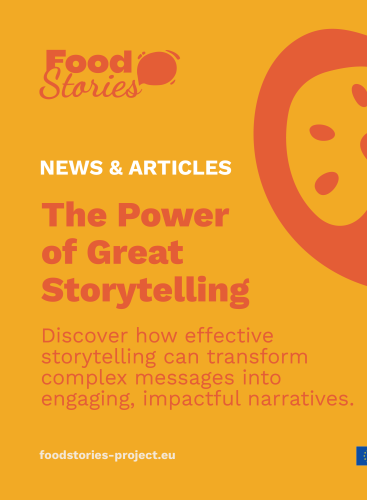Food
stories
Empowering scientists towards a more effective food science communication.

who we are
welcome to FOODSTORIES
Why was FOODSTORIES born?
In recent years, scientists have struggled to convey clear messages about science, and the scientific community must be able to balance comprehensibility with scientific rigour. The challenge for effective science communication is that while scientists are very good at what they have been trained for, science communication is not part of their training or perceived as a priority. Health and environmental science fields are the main areas in which it is necessary to improve the communication skills.
Who is the project aimed for?
- Graduate and PhD students – will benefit from enhanced courses on food science communication.
- Professors and academic personnel – will capitalize on the project's results by integrating these into existing courses on science communication or as the core of an entirely new curriculum.
- These target groups can also be commonly defined as people who are non-experts in communication of their scientific knowledge (especially) towards the general public.
How will FOODSTORIES act?
The project will build up knowledge based on real experiences in science communication, to be integrated as didactic content in future or existing university courses. In addition, a toolbox of materials and practical exercises will be compiled, strengthening the capacity of professors and scientists to engage the general public in science and convey rigorous scientific information. FOODSTORIES will also develop a comprehensive educational tool summarising how storytelling can be applied to science communication and food science in particular.
Discover our Toolbox
our blog
Recent News
Stay updated about the latest achievements of the FOODSTORIES project!
Meet Our Consortium






